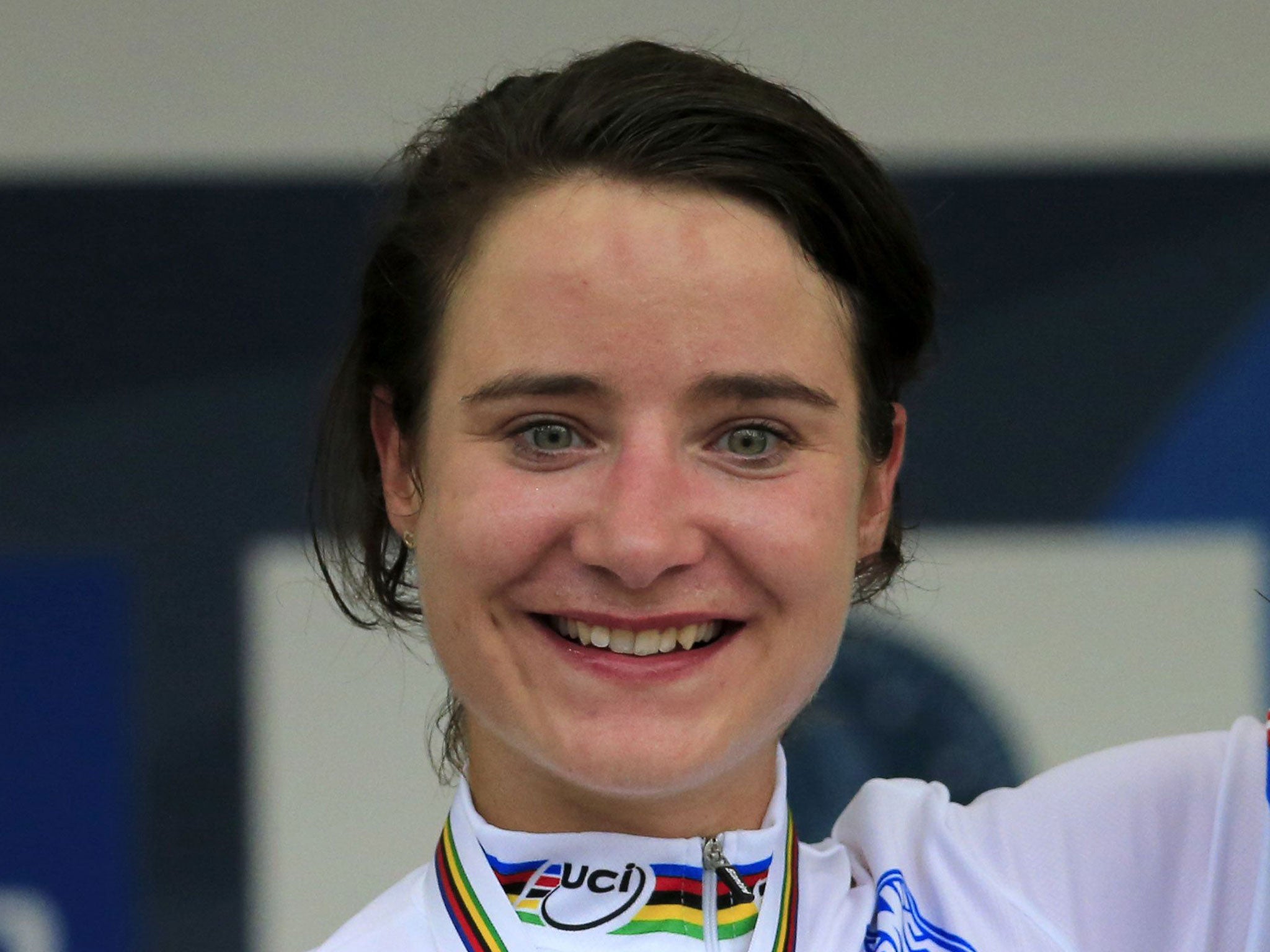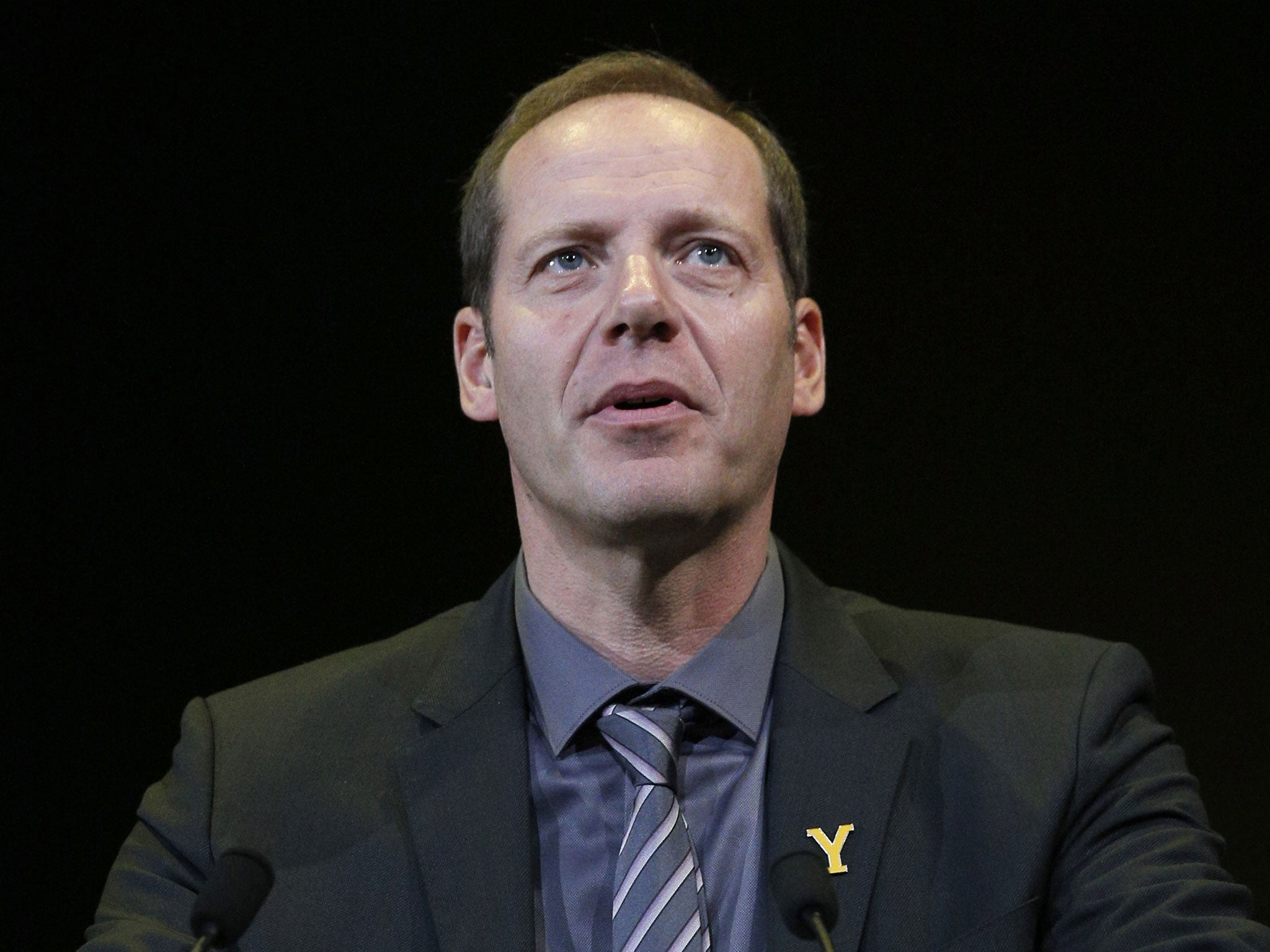Cycling: How new women’s race can make equal treatment par for La Course
Multiple Olympic and world champion Marianne Vos on how women's cycling can rival the men's sport

Your support helps us to tell the story
From reproductive rights to climate change to Big Tech, The Independent is on the ground when the story is developing. Whether it's investigating the financials of Elon Musk's pro-Trump PAC or producing our latest documentary, 'The A Word', which shines a light on the American women fighting for reproductive rights, we know how important it is to parse out the facts from the messaging.
At such a critical moment in US history, we need reporters on the ground. Your donation allows us to keep sending journalists to speak to both sides of the story.
The Independent is trusted by Americans across the entire political spectrum. And unlike many other quality news outlets, we choose not to lock Americans out of our reporting and analysis with paywalls. We believe quality journalism should be available to everyone, paid for by those who can afford it.
Your support makes all the difference.Tomorrow, La Course, a new women’s race will make its debut on the same Paris streets as the men’s Tour de France – which arrives a few hours later – and with the same Champs-Elysées finale.
Broadcast in 157 countries, 30 of those live, La Course will automatically become – with the exception of the Olympics – the highest-profile event for women’s racing.
With ASO, the Tour owners, as the event organisers, it should be a similar story to the creation of the Women’s Tour of Britain – again new this year, and already a huge success – and one that means you could be forgiven for thinking the women’s side of the sport is in a very healthy state.
Unfortunately, it is not that simple. Women’s cycling not only has much lower levels of financial backing than men’s – an average top-level women’s squad costs a little under €1m (£790,000) per annum, around 15 per cent of the budget for a top-level men’s team in the WorldTour – but is also much less well-known as a sport.
Its fight for both recognition and survival is therefore much harder than new showcase events like La Course (first proposed a little more than 12 months ago by a group of women’s riders determined to boost the sport’s profile) would suggest.

As cycling’s No 1 rider, the multiple Olympic and world champion Marianne Vos, points out, La Course is “a pilot [event], a showcase, it’s a start. First we want the pilot to be really successful, that’s why we want to do it as a really big event. You can’t ask for more within a year.
“There are conversations going on between ASO and [cycling’s governing body] the UCI and the riders and teams – the organisations are getting around a table and asking, ‘How can we grow the sport?’
“We all said the same – women’s cycling doesn’t get enough attention – but only saying it doesn’t get enough attention doesn’t work. You have to turn it round, take some steps to get that attention. Now the public is enthusiastic about the World [Championships] and the Olympics and, hopefully, La Course, too.”
Christian Prudhomme, the Tour’s director, says: “Last year during the Tour de France I was overwhelmed with hundreds and hundreds of emails on my computer, led by the top names in women’s cycling, saying, ‘We want something to happen’. La Course is a good thing for women’s cycling. It’s a good thing for cycling full stop.”

Women’s cycling has experienced a number of changes in the right direction, particularly since Brian Cookson took over as president of the UCI last autumn.
The World Cup series, the backbone of the women’s one-day racing calendar, has had its TV coverage enhanced and the UCI has had its first female vice-president, Tracey Gaudrey, since the day after Cookson was elected last September.
On top of that there are now women on all of the UCI commissions, a detrimental regulation specifying a minimum average age of 28 for teams was abolished – “most women racers don’t start until much later than men and the rule was affecting their employment possibilities”, says one insider – there is another round of the World Cup, in Germany this year, and a special UCI commission for women’s cycling has been created. La Course itself culminates the newly UCI-backed Women’s Cycling Week.
But what will it take for those green shoots to grow? “We can see that there’s interest in women’s cycling, basically we now have to get some more exposure.
It’s an exciting sport to watch, there are some great races out there – but only if you get to watch them, and that’s the biggest problem,” says Kristy Scrymgeour, general manager of the women’s Specialized-lululemon team.
Scrymgeour’s squad, one of the most long-standing and successful in the sport, symbolises the gap between future hope and the current complex situation: Specialized-lululemon’s sponsorship runs out at the end of the year, but they are planning to fund the team with a crowdsharing scheme which taps into the big increase in public interest in the women’s side of racing.
A former professional herself, Scrymgeour recalls that “There used to be a women’s Tour de France a long while back, but it folded and we took a step backwards in terms of those opportunities.
“We’re in a different era, with social media and so forth and that helps people to grow the sport. A lot of bike brands are now doing women-directed products.
"But I’d say that in the sport most women are still doing it for the love of it, because women’s salaries are not great, and neither is the prize-money.”
It has been widely suggested that the male teams in cycling’s WorldTour should be obliged to have a women’s squad. Two, Lotto-Belisol and Orica-GreenEdge, already do and Sir Bradley Wiggins, speaking to this newspaper in February, said he saw it as “the next logical step for Team Sky”.
But Scrymgeour says it would only work if it was not an obligation: “Rather than forcing it, UCI should create a situation that incentivises them, makes them realise that it’s valuable because you’re suddenly marketing to 100 per cent of the population and you’ve got more race days to talk about.”
Join our commenting forum
Join thought-provoking conversations, follow other Independent readers and see their replies
Comments